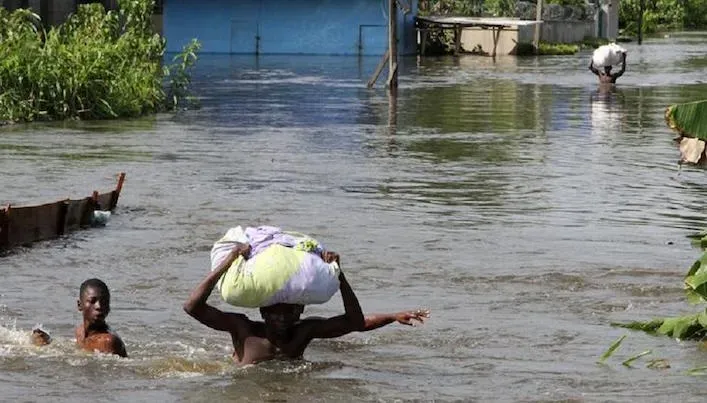By Isaac Atunlute
What once felt like a far-off threat is now shaping daily life across Nigeria and much of Africa. The signs are undeniable: flooded streets, relentless heat, food shortages and erratic seasons. Global warming isn’t in the distant future anymore.
Today’s emergency
Across Nigeria and most of Africa, the impacts of climate change are a reality now. For instance, thousands were displaced by flooding in Bayelsa and Lagos in 2024. Crops were lost to drought in the north; even cities like Abuja, known for temperate weather conditions, now sees scorching temperatures in addition to deteriorating air quality.
The Nigerian Meteorological Agency (NiMet) predicts that 2025 could be one of the hottest years on record. This is dangerous. Rising temperatures contribute to heat-related illness, declining agricultural output, and growing climate-induced migration.
How did we get here
The science is clear: human activity is the main driver of global warming. The increased concentration of the greenhouse gases—carbon dioxide, methane, and nitrous oxide—produced from burning fossil fuels, deforestation and industrial agriculture has accelerated global warming in recent years.
Why we are most affected
Although Africa contributes the least to global carbon emissions, it faces some of the worst impacts. In Nigeria, the vulnerabilities are particularly stark.
- Weak infrastructure: Poor drainage systems intensify flooding.
- Rain-fed agriculture: Unreliable rainfall patterns endanger food production.
- Limited health care access: Heat waves and climate-linked diseases strain already fragile health systems.
The price we’re paying
- Displacement: Flooding in Nigeria has forced a significant number of families out of their homes, particularly in Maiduguri and Jigawa State.
- Food insecurity: Maize and rice output dropped in 2024 due to erratic rainfall, driving up prices.
- Public health emergencies: Malaria is spreading to formerly cooler regions. Heatwaves are causing more hospital visits and deaths.
Local actions, global impact
Though the problem is global, the response must begin locally. Nigerian innovators and youths are taking up the challenge:
- Green startups are producing solar-powered irrigation and biodegradable packaging.
- Climate-smart agriculture is helping farmers adapt with drought-resistant crops and early-warning systems.
- Government policies are introducing renewable energy into rural electrification projects.
What You Can Do
Each of us has a role in this fight. These may seem small, but, collectively, they signal a shift:
- Switch to energy-saving bulbs and unplug devices when not in use.
- Reduce reliance on generators where possible; explore solar alternatives.
- Plant trees, even if one.
- Support or volunteer with local environmental initiatives.
Global warming is now part of our daily lives. The question now is how we respond. Will we wait for the heat to consume us or rise to meet the challenge together?
Climate change is no longer a distant threat, but a current reality affecting Nigeria and much of Africa. The region faces severe consequences including flooding, heatwaves, and food shortages due to erratic seasons. Nigeria, notably challenged by weak infrastructure, rain-dependent agriculture, and limited healthcare access, has seen its vulnerabilities exposed. This has resulted in increased displacement, food insecurity, and public health emergencies, such as malaria spreading to formerly cooler regions.
Africa contributes minimally to global carbon emissions but experiences some of the worst impacts. Human activities drive this, with elevated greenhouse gas levels due to fossil fuel use, deforestation, and industrial agriculture accelerating climate change. As a response, local Nigerian initiatives include green startups focusing on renewable energy, climate-smart agriculture with drought-resistant crops, and government efforts integrating renewable energy in rural electrification.
Individuals can contribute by adopting energy-saving practices, reducing generator use, planting trees, and supporting local environmental initiatives. With global warming intertwined with daily life, the central challenge lies in whether the populace rises to counter these issues collectively.






